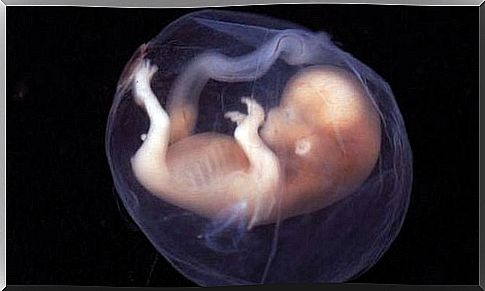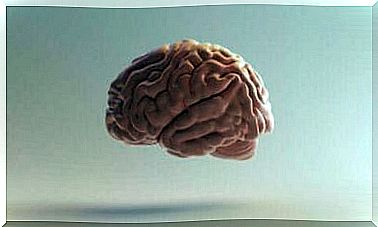Thyroid And Pregnancy

Thyroid and pregnancy have a direct relationship that not everyone knows. During pregnancy, the mother’s thyroid is “forced” to increase the production of thyroxine by 30-50%. Its balance and good functioning will favor the correct brain development of the fetus throughout the first trimester.
It is fascinating and equally disturbing at times to discover the influence of glands and hormones on our well-being. Often a small imbalance is enough to make us feel that something is wrong.
We get fat or lose weight, we feel more tired or, in the case of a pregnancy, we risk running into difficulties.
Menstrual irregularities, fertility and even the correct course of a pregnancy depend on this small, butterfly-like organ located under the Adam’s apple.
In just 30 grams all the production of the hormones triiodothyronine (T3) and thyroxine (T4) is concentrated, which have a huge impact on our health and especially on the correct development of the fetus during the first months in the mother’s womb.

Thyroid and pregnancy, a fundamental exchange between mother and child
The thyroid gland develops in the fetus between the 10th and 12th week of pregnancy. Until then, he will depend solely on the mother’s thyroid. This can only be relevant.
For example, a woman with a thyroid disorder, such as hypothyroidism, may face several problem situations.
While there may be difficulties in conceiving, this does not mean that it is impossible to get pregnant. However, the risk of miscarriage is highly likely, as is premature birth or other medical problems such as preeclampsia (gestational hypertension).
Thyroid and pregnancy are two concepts that every woman should keep in mind if she wishes to have a baby. Therefore, it is always advisable to undergo thyroid tests in order to diagnose in time any problem or dysfunction that may cause problems of long or short duration.
Hormonal changes during pregnancy
A normal pregnancy already involves an alteration of the thyroid function. This is due to the influence of two specific hormones: human chorionic gonadotropin (hCG), which is detected in pregnancy tests, and estrogen, the main female hormone.
The first, chorionic gonadotropin acts as a stimulant for the thyroid. The change in the woman’s organism occurs after 2 or 3 days after conception and will last about three months.
Some mothers perceive this change in a pronounced way (also known as false hyperthyroidism), to the point of experiencing more vomiting than normal, palpitations and even weight loss.

As the second trimester enters, other effects arise that also change thyroid function. In this case, the female hormones themselves (estrogen) are responsible.
Between the sixteenth and twentieth weeks, levels of the protein responsible for fixing thyroxine in the blood double (TBG).
This disorder is also known as false hypothyroidism, but if clinical tests indicate that free T4 (thyroxine) has not changed, then there is no need to worry.
Symptoms of hypothyroidism in pregnancy
Since the relationship between thyroid and pregnancy is so relevant, it is normal for them to periodically monitor the mother’s thyroid profile during gestation. In the event that insufficient production of thyroxine is detected, we will be faced with a diagnosis of hypothyroidism.
It must be said, however, that it is easily treatable. The symptoms are as follows:
- Weak and brittle hair and nails.
- Tiredness.
- Abnormal weight gain
- Continued feeling of cold.
- Muscle and joint pains.
- Dry skin
- Digestive problems
Furthermore, as we said at the beginning, the appearance of a thyroid problem during pregnancy increases the risk of miscarriage and premature birth.
Symptoms of hyperthyroidism in pregnancy
The risk of developing hyperthyroidism during pregnancy is relatively low. As population studies show, the incidence is 2 in 1000 women. The symptoms are as follows:
- Slimming
- Intestinal disorders
- Little heat tolerance
- Discomfort and bad mood.
- Tremors.
- Insomnia
- Goiter (swollen neck).
- Preclampsia: hypertension and water retention.
On the other hand, if a woman suffers from hyperthyroidism during pregnancy and does not receive adequate care, there is a risk of fetal death.

Thyroid and pregnancy: the importance of prevention
The relationship between thyroid and pregnancy should not become a cause for concern, as long as you are under the supervision and supervision of a doctor. Disorders of the thyroid gland are successfully treatable in both mother and baby.
In the event that the family history includes events related to this disease and you plan to have a child, it is advisable to consult a specialist and follow all the appropriate indications.
Proper supervision based on regular checkups, combined with a balanced diet and healthy lifestyle habits, will undoubtedly allow you to experience a safer pregnancy.









